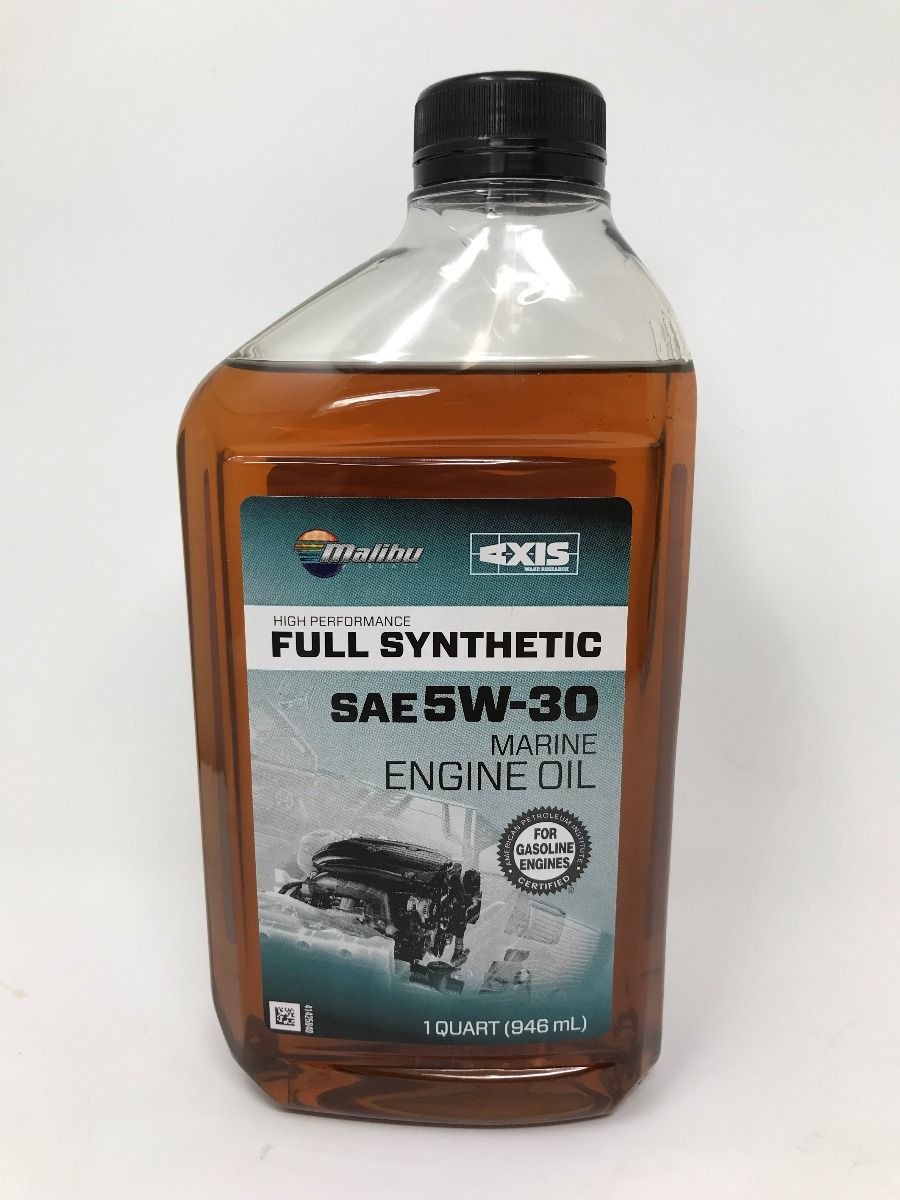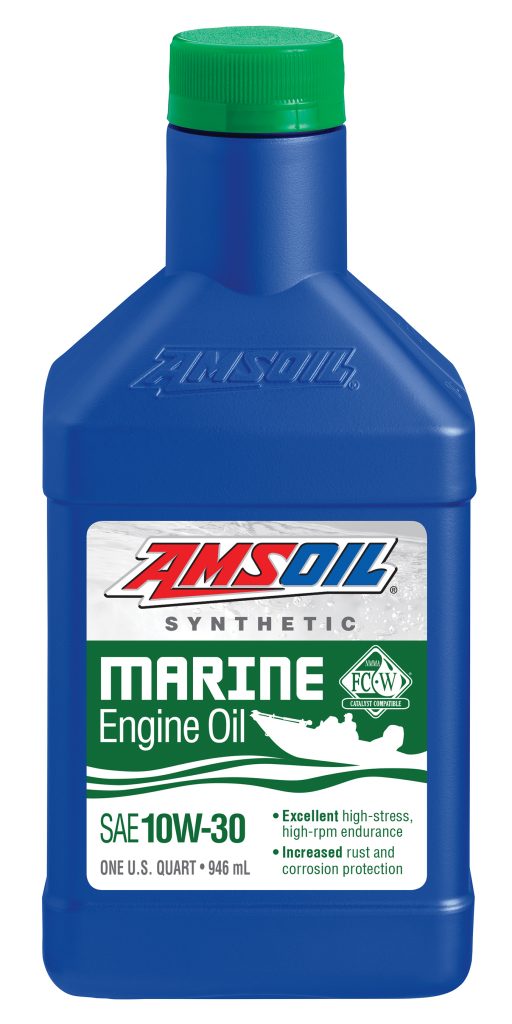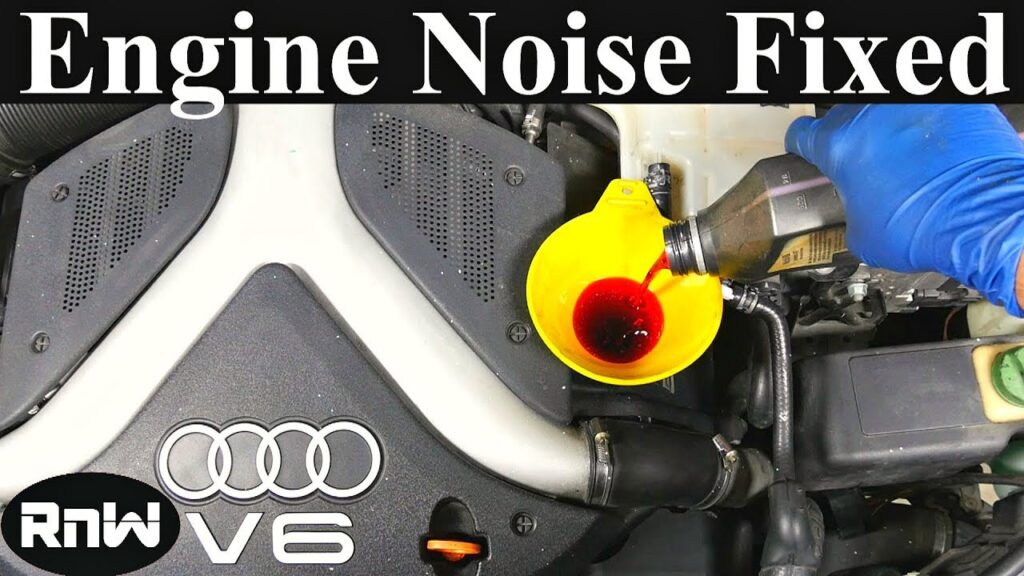The best oil for boat engines is a marine-grade, synthetic blend. It ensures optimal performance and longevity.
Choosing the right oil for your boat engine is crucial for maintaining its health and efficiency. Marine engines operate under unique conditions, including exposure to moisture and varying temperatures, which can affect their performance. A high-quality, synthetic blend oil is specifically designed to withstand these challenges, providing superior protection against wear, corrosion, and the buildup of harmful deposits.
By selecting the right oil, boat owners can significantly enhance their engine’s reliability and lifespan, ensuring smooth sailing on all their aquatic adventures. Ensuring your vessel is powered by the best possible lubricant not only protects your investment but also keeps your journeys on the water smooth and enjoyable.

Credit: www.servicebest.com
Introduction To Marine Engine Lubrication
Boat engines operate in harsh conditions. Marine engine lubrication is critical. It protects against corrosion, wear, and damage. High-quality oil ensures smooth sailing.
Importance Of Choosing The Right Oil
Selecting the right oil for your boat engine is vital. The wrong type can cause harm. It can lead to costly repairs. Proper oil maintains engine health.
- Prevents build-up of harmful deposits
- Protects against rust and corrosion
- Ensures efficient fuel consumption
Impact On Engine Performance And Longevity
The right oil boosts engine performance. It also extends engine life. Quality marine oils reduce friction. They keep engines running at peak efficiency.
| Benefit | Impact |
|---|---|
| Reduced Wear | Longer Engine Life |
| Lower Friction | Improved Performance |
| Better Protection | Less Maintenance Costs |

Credit: www.bakesonline.com
Types Of Boat Engine Oils
Choosing the right oil for a boat engine is critical. It ensures smooth operation and long-lasting performance. Boat engines require specific oils to handle the unique marine environment. Let’s explore the different types of boat engine oils available.
Mineral Vs Synthetic
Mineral oils are refined from crude oil. They provide reliable lubrication at a lower cost. They suit older engines well.
Synthetic oils, on the other hand, are engineered for peak performance. They withstand extreme temperatures and protect against wear.
| Oil Type | Benefits |
|---|---|
| Mineral | Cost-effective, good for older engines |
| Synthetic | High performance, better at temperature extremes |
Specialty Oils For Different Watercraft
Different boats need different oils. Jet skis, yachts, and fishing boats have unique needs. Specialty oils are tailored to these needs.
- Jet Ski Oil: Designed for high RPMs and agility.
- Yacht Oil: Formulated for long hours and heavy engines.
- Fishing Boat Oil: Protects against corrosion from frequent idling.
Viscosity Grades Explained
Boat engines need special oil to run smoothly. The oil’s thickness, or “viscosity,” is key. Let’s dive into viscosity grades to keep your engine happy.
Understanding Viscosity Ratings
Viscosity tells us how thick or thin an oil is. It affects how well your engine runs. Think of it like honey versus water. Honey is thick, water is thin. Oil works the same way.
Multi-grade oils have two numbers. The first number ends with a “W” for winter. It shows the oil’s flow in cold weather. The second number tells us the oil’s thickness at normal engine temperatures. Lower numbers mean thinner oil.
Boat engines often work hard and get hot. They need oil that can handle that heat. A high second number means the oil stays thick, even when it’s hot.
Choosing The Correct Viscosity For Your Engine
Every engine has a sweet spot. Use the wrong oil, and the engine could wear out faster.
Check the manual. It tells you the best oil for your engine. Stick to that grade for a happy, long-lasting engine.
Remember: Cold climates need lower “W” numbers. Hotter places or heavy use need higher second numbers. This keeps your engine safe in all conditions.
Here’s a quick guide:
| Condition | Viscosity Grade |
|---|---|
| Cold Weather | Low ‘W’ number (5W, 10W) |
| Normal Use | Mid-range number (30, 40) |
| Heavy Use/Hot Climate | High number (40, 50) |
Match the oil to your climate and boat use. This keeps the engine strong and efficient.

Credit: synthetic-oildepot.com
Key Properties Of High-performance Engine Oils
Boats need strong engines to glide on water smoothly. High-performance engine oils keep boat engines in top shape. These oils have key properties. They protect engines and enhance their life. Let’s dive into the details of these properties.
Additives And Their Benefits
Additives are vital for engine oils. They serve different purposes:
- Detergents: Keep engines clean by removing deposits.
- Dispersants: Help prevent sludge formation.
- Anti-wear agents: Reduce engine component wear.
- Friction modifiers: Lower friction for better efficiency.
- Antioxidants: Prolong oil life by preventing breakdown.
Resistance To Oxidation And Corrosion
Resistance to oxidation keeps oil fresh longer. It stops oil from becoming thick and sludgy. Corrosion resistance protects engine parts. It fights off rust and damage from water exposure. Together, they ensure engines run smoothly for years.
The Role Of Oil In Engine Protection
The Role of Oil in Engine Protection cannot be overstated. It’s a shield for your boat’s engine, battling against common adversaries like corrosion, wear, and overheating. Picking the right oil ensures your marine journey remains smooth and uninterrupted. Let’s delve into the specifics of how oil serves as the guardian of your engine’s well-being.
Preventing Wear And Tear
Oil acts as a barrier between moving parts. Without it, metal rubs on metal, causing damage. High-quality oils contain additives. These additives form a protective layer. They reduce friction and prevent wear. Over time, this extends your engine’s life.
- Reduces direct contact between engine parts
- Minimizes metal fatigue from constant use
- Protects against rust and corrosion
Controlling Engine Temperature
Engines get hot, especially on the water. Oil pulls heat away from the engine. It helps maintain a safe operating temperature. Cool engines run better and last longer.
| Function | Benefit |
|---|---|
| Dissipates heat | Keeps engine cool |
| Prevents overheating | Reduces breakdown risk |
Choose the best oil for your boat engine. It ensures peak performance and longevity. Always consult your owner’s manual for the right type and viscosity. Happy boating!
Top Recommended Oils For Boat Engines
Boat engines need the best oil to run smoothly. The top recommended oils ensure your engine stays healthy. This guide covers the best options for your boat.
Reviews Of Leading Brands
- MarineMax ProBlend: Offers excellent protection against wear.
- AquaLube Supreme: Enhances engine performance in harsh conditions.
- SeaGuard Elite: Provides superior cleanliness and longevity.
All these brands have proven track records. They keep your engine in top condition.
Pros And Cons Of Popular Choices
| Oil Brand | Pros | Cons |
|---|---|---|
| MarineMax ProBlend | High wear protection | Can be pricey |
| AquaLube Supreme | Boosts performance | Not available everywhere |
| SeaGuard Elite | Long-lasting | May require frequent changes in harsh conditions |
Choose the oil that suits your boat’s needs. Remember, the right oil keeps your engine happy.
Changing Boat Engine Oil
Maintaining the health of a boat engine is crucial for performance and longevity. One key aspect of this maintenance is the regular changing of the engine oil. This process not only ensures the smooth operation of the engine but also helps in detecting potential issues early on.
Best Practices For Oil Change
Changing the oil in a boat engine is not just about the act itself, but also about doing it correctly. Here are some best practices:
- Warm up the engine to thin the oil for better flow.
- Turn off the engine and remove the key before starting.
- Place a pan under the engine to catch the old oil.
- Use the right tools to remove the oil filter.
- Apply a thin film of new oil to the new filter’s gasket.
- Fill the engine with the correct type and amount of oil.
- Dispose of the old oil and filter responsibly.
Frequency And Seasonal Considerations
How often should you change the oil in your boat engine? It depends on several factors:
| Type of Engine | Change Frequency | Seasonal Tips |
|---|---|---|
| Inboard Engines | Every 100 hours or annually | Change before winter storage |
| Outboard Engines | Every 100 hours or annually | Change before long periods of inactivity |
| Sterndrive Engines | Every 100 hours or annually | Check levels regularly during peak season |
Always refer to the manufacturer’s guidelines for specific oil change intervals. Seasonal changes can affect your maintenance schedule too. For example, before winterizing your boat, changing the oil can help prevent moisture and acids from harming the engine during the off-season.
Troubleshooting Common Oil-related Engine Issues
Boat engines demand the best oil for peak performance and longevity. Like any motor, these engines can suffer from oil-related issues. Recognizing and addressing these problems early can save time and money. Let’s explore common oil troubles and solutions.
Recognizing Signs Of Oil Degradation
Oil keeps engines running smoothly. But over time, it breaks down. This can harm your boat’s engine. Look out for these signs:
- Dark, dirty oil: Clean oil is vital for engine health.
- Odd noises: Knocking or rumbling could mean oil issues.
- Exhaust smoke: Blue smoke indicates burning oil.
- Oil odor: A strong smell suggests a leak or excess use.
Addressing Contamination And Leaks
Contaminants and leaks are enemies of engine oil. Here’s how to tackle them:
| Issue | Action |
|---|---|
| Water contamination | Change oil immediately. |
| Dirt or debris | Clean engine parts. Replace oil. |
| Oil leaks | Inspect seals. Fix leaks promptly. |
Environmental Considerations And Regulations
Choosing the best oil for boat engines is crucial. Not only for the engine’s health but also for the environment. Today, we dive into environmental considerations and regulations. These aspects guide our oil choices. Let’s explore how to make eco-friendly decisions for our marine engines.
Biodegradable Oils And Their Impact
Biodegradable oils are kind to our seas. These oils break down faster than traditional oils. This means less harm to water life and ecosystems. By choosing biodegradable oils, boat owners support marine health.
- Less Pollution: These oils reduce the risk of water pollution.
- Faster Decomposition: They break down quickly in water.
- Support Marine Life: Safer for fish and plants in the sea.
Navigating Marine Engine Oil Regulations
Regulations help protect our seas. Different regions have various rules. Boat owners must follow these to avoid fines and support eco-friendly boating.
| Region | Regulation Summary |
|---|---|
| USA | EPA standards guide oil disposal and spill prevention. |
| Europe | Strict limits on oil types and disposal methods. |
| Asia | Emerging regulations focus on spill management. |
Understanding these rules is key. It ensures boats use environment-friendly oils. Always check local regulations before choosing your engine oil.
Future Trends In Marine Engine Lubricants
The future of marine engine lubricants is exciting. New trends promise better performance and eco-friendliness. Let’s explore what’s coming up in this field.
Innovations In Oil Technology
Technology is changing fast. So is the technology for boat engine oil. Scientists are creating oils that last longer and protect engines better. These oils can also improve fuel efficiency. This means boats can go longer distances using less fuel.
- Long-lasting formulas reduce the need for frequent changes.
- Advanced additives fight engine wear and corrosion.
- These oils help engines run smoother and cleaner.
The Move Towards Sustainable Solutions
The world cares more about the environment now. Boat engine oils are also going green. New oils are made from biodegradable materials. They cause less harm to the ocean. Some companies are even making oil from renewable sources. This is good for our planet.
- Biodegradable oils break down naturally, protecting marine life.
- Renewable oils come from plants, not from deep under the earth.
- These eco-friendly oils still keep engines running strong.
Frequently Asked Questions
What Is The Best Oil For Boat Engines?
The best oil for boat engines is typically a marine-grade oil specifically formulated for marine environments. It should be high in corrosion inhibitors, have good lubricity, and be capable of handling the engine’s operational demands.
How Often Should I Change My Boat Engine Oil?
Boat engine oil should generally be changed every 100 hours of operation, or at least once per year, whichever comes first. Always refer to the manufacturer’s guidelines for the most accurate maintenance schedule.
Can I Use Car Oil In My Boat Engine?
It’s not recommended to use car oil in boat engines. Marine engine oils are designed to handle the unique conditions of marine environments, including higher moisture and the need for more corrosion protection.
Does Oil Brand Matter For Marine Engines?
Yes, oil brand matters for marine engines. Choose a reputable brand that meets or exceeds the manufacturer’s specifications and is NMMA (National Marine Manufacturers Association) certified for marine use.
How do I choose the best oil for my boats engine?
Choosing the right oil for your boat’s engine is crucial to ensure optimal performance and longevity. Here are some key points to consider:
1. Marine Oil Types:
– Two-Stroke Oil (TC-W3): Older boats with two-stroke engines require TC-W3 oil. Unlike modern engines, two-stroke engines need oil mixed with the fuel.
– Four-Stroke Oil (FC-W): Modern four-stroke engines work similarly to car engines. They have a separate oil reservoir that lubricates and cools the engine.
– Four-Stroke Oil (FC-W Catalyst Compatible): Some four-stroke engines with exhaust after-treatment need a specific type of oil called FC-W Catalyst Compatible.
2. Consult Your Owner’s Manual:
– Your boat’s owner’s manual will specify the correct oil type and weight for your engine.
– Look for the National Marine Manufacturers Association (NMMA) certification on the oil bottle to ensure it meets the necessary standards.
Remember, using the right marine oil will protect your engine and keep it running smoothly. If you’re ever unsure, consult your engine manufacturer or an expert in marine oils.
Conclusion
Selecting the right oil for your boat engine is crucial for peak performance and longevity. Embrace the guidance shared and make an informed choice. Prioritize quality and compatibility, and your marine adventures will thank you. Set sail with confidence, knowing your engine is powered by the best.
Safe boating!

